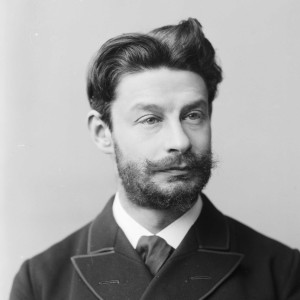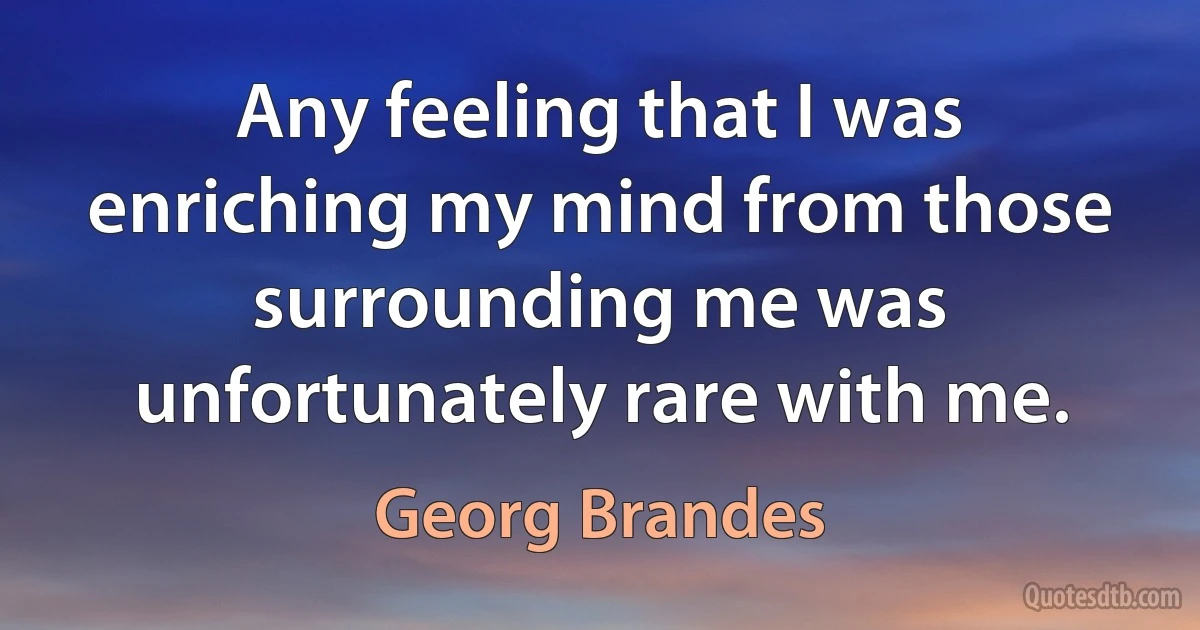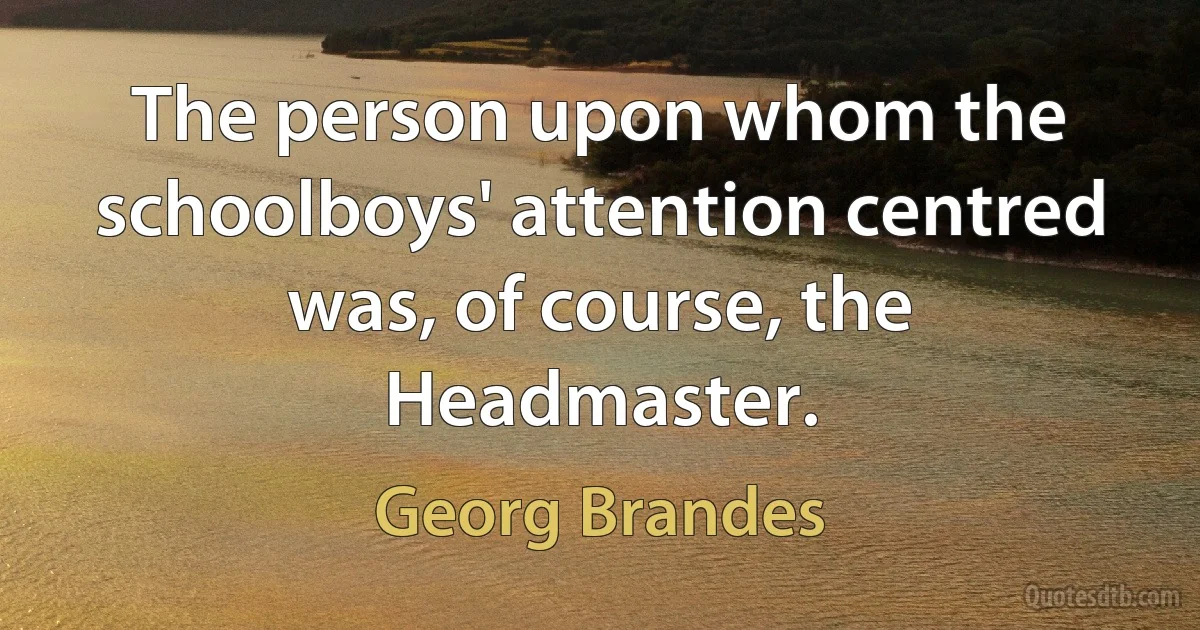Georg Brandes quotes - page 2
Georg Brandes was a Danish literary critic and scholar, recognized for his influence on European literature. His advocacy for realism and the Modern Breakthrough movement inspired major writers across Scandinavia and beyond. He played a crucial role in shaping modern thought and intellectual debate in the late 19th and early 20th centuries. Here are 74 of his quotes:
Since fresh examples and proofs could always be found of the alleged relation between guilt and punishment: if you behave in such and such a way, it will go badly with you. Now, as it generally does go badly, the allegation was constantly confirmed; and thus popular morality, a pseudo- science on a level with popular medicine, continually gained ground.

Georg Brandes
But what of the voice and judgment of conscience? The difficulty is that we have a conscience behind our conscience, an intellectual one behind the moral. ... We can see quite well that our opinions of what is noble and good, our moral valuations, are powerful levers where action is concerned; but we must begin by refining these opinions and independently creating for ourselves new tables of values.

Georg Brandes
[Nietzsche inveighs] against every sort of historical optimism; but he energetically repudiates the ordinary pessimism, which is the result of degenerate or enfeebled instincts of decadence. He preaches with youthful enthusiasm the triumph of a tragic culture, introduced by an intrepid rising generation, in which the spirit of ancient Greece might be born again. He rejects the pessimism of Schopenhauer, for he already abhors all renunciation; but he seeks a pessimism of healthiness, one derived from strength, from exuberant power, and he believes he has found it in the Greeks.

Georg Brandes
It appears to [Nietzsche] that the modern age has produced for imitation three types of man ... First, Rousseau's man, the Titan who raises himself ... and in his need calls upon holy nature. Then Goethe's man ... a spectator of the world ... [Third] Schopenhauer's man ... voluntarily takes upon himself the pain of telling the truth.

Georg Brandes
History, in [Nietzsche's] view, belongs to him who is fighting a great fight, and who needs examples, teachers and comforters, but cannot find them among his contemporaries. Without history the mountain chain of great men's great moments, which runs through millennia, could not stand clearly and vividly before me.

Georg Brandes
What has here happened is that the instinct of cruelty, which has turned inwards, has become self-torture, and all man's animal instincts have been reinterpreted as guilt towards God. Every Nay man utters to his nature, to his real being, he flings out as a Yea, an affirmation of reality applied to God's sanctity.

Georg Brandes
What [Nietzsche] calls slave morality is to him purely spite-morality; and this spite-morality gave new names to all ideals. Thus impotence, which offers no reprisal, became goodness; craven baseness became humility; submission to him who was feared became obedience; inability to assert one's self became reluctance to assert one's self, became forgiveness, love of one's enemies. Misery became a distinction.

Georg Brandes
He maintains that culture shows itself above all else in a unity of artistic style running through every expression of a nation's life. On the other hand, the fact of having learnt much and knowing much is, as he points out, neither a necessary means to culture nor a sign of culture; it accords remarkably well with barbarism, that is to say, with want of style or a motley hotchpotch of styles.

Georg Brandes
Georg Brandes

Photo:
Wikimedia commons,
CC BY-SA 4.0
Occupation: Danish Critic
Born: February 4, 1842
Died: February 19, 1927
Quotes count: 74
Wikipedia: Georg Brandes











